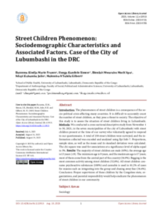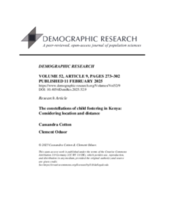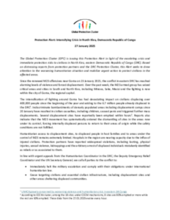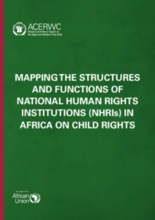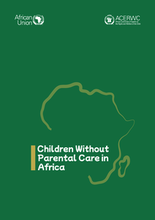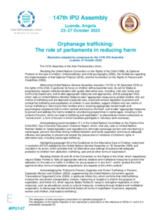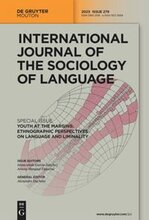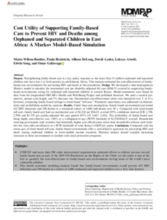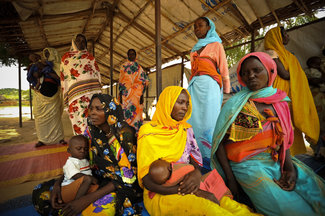

Displaying 1 - 10 of 218
This study assessed the situation of street children in Lubumbashi, DRC through a survey of 250 children across the city’s seven municipalities in November 2021. The findings highlight the urgent need for stronger state involvement, organizational support, and parental responsibility to address and reduce the phenomenon of street children.
This study examined the geographical location of fostered children in Kenya, identified who provides their care and the nature of mothers’ relationships with these caregivers, explored transitions and mobility within kin networks, and analyzed how location and distance influence maternal–child contact.
The Global Protection Cluster (GPC) is issuing this Protection Alert in light of the escalating crisis and immediate protection risks to civilians in North Kivu, eastern Democratic Republic of Congo (DRC). Based on distressing reports from protection partners and the DRC Protection Cluster, this alert seeks to draw attention to the worsening humanitarian situation and mobilize urgent action to protect civilians in the affected areas.
In this webinar, the Africa Working Group on Children Without Parental Care now called Family First for Children Without Parental Care, (FAFICA), explores key global debates and initiatives advancing care reform, including updates from the African Union and global events like the Global Ministerial Conference on Ending Violence Against Children.
Case studies from Peru, Cambodia and DRC provide lessons on how income support can contribute to keeping children safe.
ACERWC released a study on the structures and functions of NHRIs on child protection to assess how child rights issues are incorporated in their mandates. The study identifies challenges and proposes areas to strengthen collaboration.
The African Committee of Experts on the Rights and Welfare of the Child (ACERWC/the Committee), in collaboration with African Union Member States, partner organizations, children and young people, launches the first of its kind Continental Study on Children Without Parental Care (CWPC) in Africa. The study, conducted from 2020 to 2022, amid the COVID-19 pandemic, covered over 43 countries in the five regions of Africa.
This resolution on orphanage trafficking was adopted by consensus at the 147th IPU Assembly and endorsed by 180 parliaments.
This article examines how language, liminality, and social marginalization converge in the institutional lives of two displaced children in Angola. A displaced child is very likely to be placed into institutionalized care, which in Angola exists in the form of centros de acolhimento, residential centers that house minors affected by orphanhood, poverty, displacement, or abandonment. Drawing on one year of ethnographic research in two residential centers, the article argues that despite being sites of care and protection, some children come to desire living on the street as a byproduct of persistent marginalization and forms of liminality in the institutions.
This analysis estimated the cost-effectiveness of family-based care environments for preventing HIV and death among orphaned and separated children in sub-Saharan Africa.

